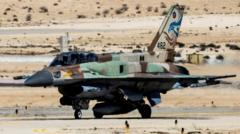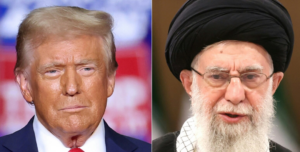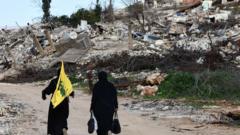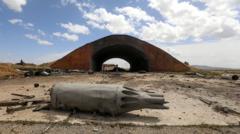The recent air strikes signify escalating hostilities between Israel and Turkey in the wake of Syria's changing leadership dynamics.
Escalation of Israel-Turkey Conflict Marks New Chapter in Syrian Turmoil

Escalation of Israel-Turkey Conflict Marks New Chapter in Syrian Turmoil
Tensions rise as Israel's air strikes in Syria challenge Turkey’s influence amid a fragile new government.
Israel's military presence in Syria has recently intensified, with an airstrike on Wednesday hitting multiple military targets, including two significant airports: Hama military airport and the T4 base near Homs. This bombardment has been described by Syria's foreign ministry as nearly destroying the Hama base, and reports indicate the death of four defense ministry employees alongside numerous injuries. Analysts suggest that Israel's strikes may be less about Syria itself and more about undermining Turkey’s growing influence in the region.
In reaction to the air strikes, Turkish officials have condemned Israel's actions, asserting that they destabilize the region and threaten security. Turkish Foreign Minister Hakan Fidan emphasized that Turkey is not seeking confrontation but reaffirmed that Syria has the right to chart its course with Israel. The Syrian interim president, Ahmed al-Sharaa, has expressed a desire for peace, suggesting he might eventually pursue diplomatic relations with Israel, albeit cautiously.
Since the fall of Bashar al-Assad's regime, Israel has been actively engaged in military interventions to prevent any weapons from reaching hostile groups. Their military operations included repeated strikes against remnants of Assad’s military infrastructure to thwart any resurgence of threats against Israel. Reports from the recently seized southwestern province of Deraa describe significant civil casualties amidst escalating Israeli bombardments, raising concerns within Syria about Israel's role in the nation's tumultuous path forward.
Despite expectations for a less adversarial relationship following the Assad regime's collapse, many Syrians now view Israel through a critical lens, feeling that continued bombings target them rather than just former regime forces. The recent violence and conflict have exacerbated internal divisions among Syria's diverse ethnic and sectarian groups, leaving the country vulnerable to foreign machinations.
The atmosphere remains fraught as Turkey deploys military resources into Syria, countering Israel's persistent intervention strategies. With Syria's new leadership seeking to stabilize its grip amidst lingering threats, the stakes have never been higher in the region as outside powers vie for influence in a nation still reeling from years of civil strife.
In reaction to the air strikes, Turkish officials have condemned Israel's actions, asserting that they destabilize the region and threaten security. Turkish Foreign Minister Hakan Fidan emphasized that Turkey is not seeking confrontation but reaffirmed that Syria has the right to chart its course with Israel. The Syrian interim president, Ahmed al-Sharaa, has expressed a desire for peace, suggesting he might eventually pursue diplomatic relations with Israel, albeit cautiously.
Since the fall of Bashar al-Assad's regime, Israel has been actively engaged in military interventions to prevent any weapons from reaching hostile groups. Their military operations included repeated strikes against remnants of Assad’s military infrastructure to thwart any resurgence of threats against Israel. Reports from the recently seized southwestern province of Deraa describe significant civil casualties amidst escalating Israeli bombardments, raising concerns within Syria about Israel's role in the nation's tumultuous path forward.
Despite expectations for a less adversarial relationship following the Assad regime's collapse, many Syrians now view Israel through a critical lens, feeling that continued bombings target them rather than just former regime forces. The recent violence and conflict have exacerbated internal divisions among Syria's diverse ethnic and sectarian groups, leaving the country vulnerable to foreign machinations.
The atmosphere remains fraught as Turkey deploys military resources into Syria, countering Israel's persistent intervention strategies. With Syria's new leadership seeking to stabilize its grip amidst lingering threats, the stakes have never been higher in the region as outside powers vie for influence in a nation still reeling from years of civil strife.























